What are Solenoids
Solenoids are fundamental components in various industrial and commercial applications, acting as the bridge between electrical systems and mechanical operations. These devices convert electrical energy into mechanical motion, allowing for precise control over a range of functions, from locking mechanisms to fluid control in valves. Solenoids are essential for businesses that require automation or remote operation of machinery, making them invaluable in sectors such as manufacturing, automotive, and even household appliances.
The principle behind a solenoid’s operation is based on electromagnetism. When an electric current passes through a coil of wire within the solenoid, a magnetic field is generated. This magnetic field affects a movable plunger or armature within the solenoid’s housing, causing it to slide or pivot. The movement of this plunger can then be harnessed to perform work, such as opening or closing a valve or activating a switch. Due to their simplicity and reliability, solenoids are preferred in many applications where control and durability are paramount.
Solenoids come in various shapes and sizes, with design variations catering to specific applications and operational requirements. They can be designed to work with different voltage levels and to produce varying degrees of force or motion. Additionally, solenoids can be either momentary, where they return to their original position once the current is cut off, or latching, where they maintain their position without continuous power. This versatility allows businesses to select the appropriate type of solenoid for their particular use case.
Types of Solenoids
The variety of solenoids available caters to a multitude of industrial and commercial uses. Each type offers unique characteristics suited to specific tasks:
Linear Solenoids: These solenoids provide straight-line motion and are commonly used in locking mechanisms, vending machines, and medical devices. Their operation involves the armature moving in or out of the coil when activated.
Rotary Solenoids: Unlike linear variants, rotary solenoids induce rotational motion. They are often found in applications requiring precise angular positioning, such as robotics or automated machinery controls.
Latching Solenoids: Latching solenoids maintain their position even after the power supply is disconnected, thanks to a permanent magnet that holds the armature in place. This feature makes them suitable for devices that need to remain in a set state without constant energy consumption.
Push-Pull Solenoids: With the ability to exert force in both directions—pushing and pulling—these solenoids are versatile performers in industrial machinery and electronic locking systems.
Proportional Solenoids: These offer variable control of the armature’s position based on the input current strength, enabling precise regulation in applications such as fluid control valves.
How to choose Solenoids
Choosing the right solenoid for your business involves understanding both the specific requirements of your application and the capabilities of different solenoid types. Here are some considerations:
Material: The construction material affects the solenoid's durability and suitability for different environments. Options include stainless steel for corrosion resistance or plastic for lightweight applications.
Customized Support: OEM (Original Equipment Manufacturer), ODM (Original Design Manufacturer), and OBM (Original Brand Manufacturer) support might be crucial if your application requires custom specifications.
Temperature of Media: Consider whether the solenoid will interact with media at medium or normal temperatures, as this will impact material selection and design robustness.
Local Service Location: Depending on your location, you may want to choose suppliers who can provide services in your area for quicker response times.
Applicable Industries: Ensure that the solenoid is suitable for use in your industry—be it a manufacturing plant, food shop, hotel, or construction site.
Application: Clearly define whether the solenoid will be used for valve operation, industrial automation, or commercial products.
Power: Determine if you require hydraulic power sources for your solenoid's operation.
Color and Structure: While aesthetic considerations like color may be secondary, the structure—such as whether it's designed for control—is fundamental to its function.
When selecting a solenoid on Alibaba.com, it's important to review the specifications provided by suppliers carefully. The platform offers an extensive range of products from various suppliers around the world, allowing you to compare options and choose one that fits your technical requirements.
Best Solenoids on Alibaba.com
Alibaba.com stands out as a global marketplace connecting businesses with a vast selection of industrial components like solenoids. The platform's commitment since its inception has been to simplify global trade for small and medium-sized enterprises by providing an array of products from verified suppliers worldwide—solenoids being no exception. With advanced search capabilities, buyers can find specific types of solenoids tailored to their needs while benefiting from competitive wholesale pricing.
The diversity of suppliers on Alibaba.com means that whether you need high-torque rotary solenoids for automation tasks or compact push-pull models for electronic devices, you're likely to find a match among the vast listings. Moreover, businesses can leverage services like Trade Assurance for added transaction security—the assurance that payment is protected until delivery is confirmed helps foster trust between buyers and suppliers.
Alibaba.com's user-friendly interface simplifies product discovery even on mobile devices while also offering features such as communication in local languages—a testament to their dedication to providing an accessible trading experience. Through Alibaba.com's extensive network and support services, businesses can enjoy streamlined procurement processes regardless of their industry or location globally.
Common FAQs for Solenoids
What is a solenoid and how does it work?
A solenoid is an electromagnetic device that converts electrical energy into mechanical motion. When electric current flows through a coil, it generates a magnetic field that moves an internal plunger or armature, which can then perform various mechanical tasks.
In which applications are solenoids commonly used?
Solenoids are used in numerous applications, including as actuators in valves, locking mechanisms for security systems, components in automotive engineering, and as parts of industrial machinery for automation processes.
How do I select the right material for a solenoid?
Choose a solenoid material based on the environment it will operate in. For example, stainless steel is resistant to corrosion, making it ideal for harsh conditions, while plastic may be suitable for lightweight or low-stress applications.
Can I get customized solenoids for my business needs?
Yes, many suppliers offer customized support such as OEM, ODM, and OBM services to tailor solenoids to your specific business requirements and applications.
What should I consider regarding the temperature of media when selecting a solenoid?
Ensure the solenoid is rated for the temperature range of the media with which it will interact. Solenoids are typically designed for either medium or normal temperature operation.
Does the local service location matter when ordering solenoids?
Yes, choosing suppliers that provide local service can be beneficial for faster delivery times and easier access to support and maintenance services.
How do I decide between a push-pull and a latching solenoid?
Consider whether you need a solenoid that can move in two directions (push-pull) or one that maintains its position without power (latching), depending on your application's requirements.
Are there specific solenoids designed for my industry?
Solenoids come in various designs to cater to different industries such as manufacturing plants, food shops, hotels, construction sites, etc. It is important to verify that the chosen solenoid meets the demands of your specific industry.
What power source do I need for my solenoid?
Determine whether your application requires an electric or hydraulic power source for the solenoid and select accordingly.
How does structure affect a solenoid's function?
The structure of a solenoid—specifically whether it is designed for control—directly affects how it operates within your system. It's important to match the structure to your functional requirements.
Can I specify the color of the solenoids I order?
While many suppliers may offer different colors, color selection is typically less critical than functional specifications. However, you can check with suppliers if color customization is possible for your order.






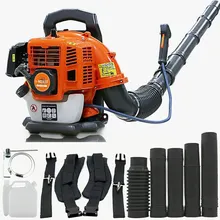

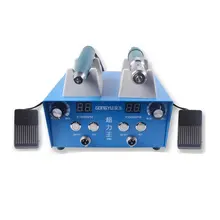



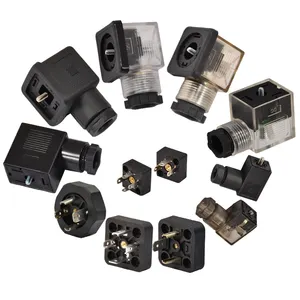


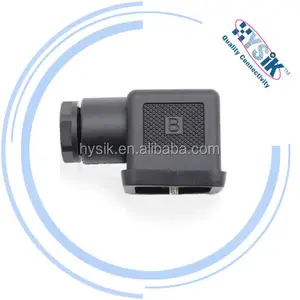
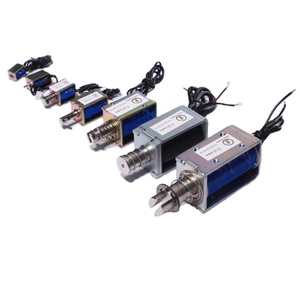
























 浙公网安备 33010002000092号
浙公网安备 33010002000092号 浙B2-20120091-4
浙B2-20120091-4